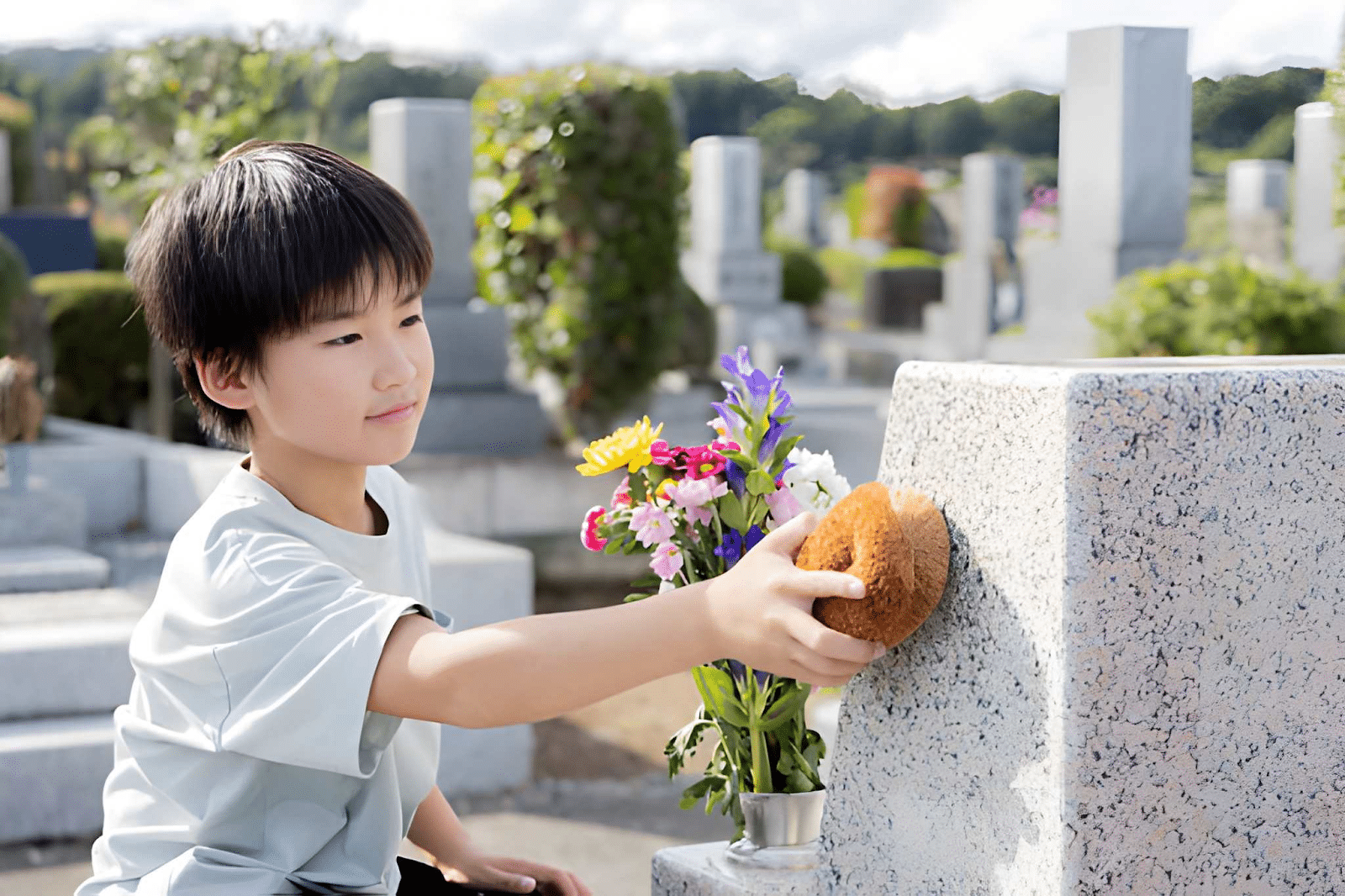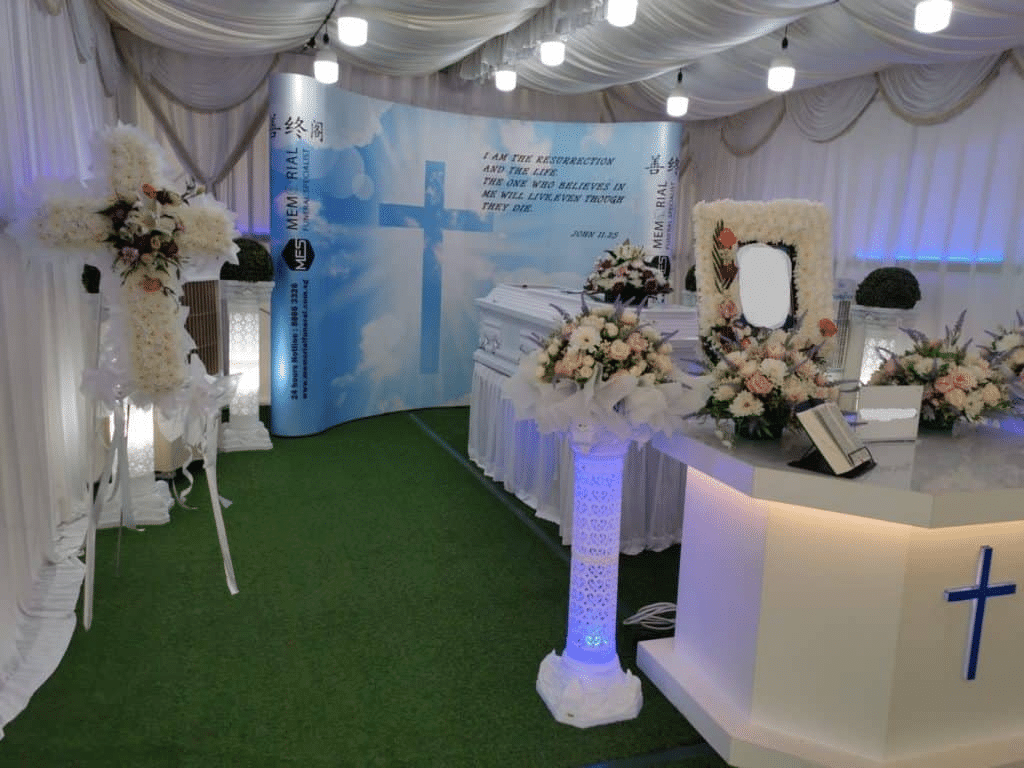Is grief ever just grief? The short answer is – no.
Grief can be different for everyone and can happen anytime. Anticipatory grief is the type of grief that isn’t talked about much. This can make it hard for people who don’t know about it to understand or talk about their feelings. That’s why it’s important to shed more light on this topic.
When we speak of grief, we often think of the negative emotional effects after an event – such as that of bereavement. But the truth is that grief can take many forms, have many facets and can happen at any time. Because these forms are less talked-about, individuals who are unfamiliar with it may find themselves feeling conflicted in understanding, expressing or sharing their inner turmoil, which is why more should be talking about anticipatory grief.
What Is Anticipatory Grief?
Anticipatory grief is when you feel sad before something bad happens. Such as someone passing away. It’s like you’re grieving before the event even occurs. It is also called anticipatory loss or preparatory grief. This kind of grief can start long before the actual loss. In most cases, its intensity is greater for one person or a few people, rather than a whole group.
So What Actually Is Anticipatory Grief?
Anticipatory grief, also sometimes known as anticipatory loss or preparatory grief, is the feeling of grief before an event – usually that of a passing, tragedy, or loss. While grief after an event is commonly shared among a group due to the specific event’s timing, anticipatory grief can begin hours, days or even months before the actual loss, and is more often keenly felt only by an individual or small group.
Examples Of Events That Cause Anticipatory Grief

(Source: Freepik)
There are many scenarios that can bring about anticipatory grief, and they usually fall into two categories: Material and physical.
Material losses can occur in the form of impending job loss, moving from a cherished home, or closure of beloved institutions such as a childhood restaurant.
Physical losses often relate to actual death, but can also happen in a few unique scenarios. Some of the most common examples of anticipatory physical loss occur with:
- Degenerative disease diagnosis, such as Alzheimer’s, Parkinson’s and other forms of dementia that breaks down cognitive abilities.
- Palliative care stage for those with chronic diseases.
- Difficult pregnancies.
- Experimental therapy and treatments.
- Waitlist for organ transplant.
- Amputation.
What you’ll find common in the above scenarios is that the physical loss is likely and there is a prescribed but undetermined duration before the event, and this is what makes anticipatory grief sometimes more complicated and difficult than post-tragedy grief. The emotional toil of waiting and physical toil of caring can add to the strain on one’s well-being during the period before the actual loss.
It is important to note that anticipatory grief can happen in both the afflicted person and the caregivers around them – so a caretaker of a person with dementia is just as likely to experience anticipatory grief as the patient themselves – and support for both is just as crucial and needed.
Why Is Anticipatory Grief So Difficult?

(Source: Freepik)
Unlike conventional grief which grieves “backward”, anticipatory grief has to deal with an impending scenario, made complicated by the possibility of hope. In examples such as experimental treatments, one might cling on to the slightest signs of recovery. For those caring for dementia patients, a sudden episode of clarity might tempt one into thinking a reversal is about to occur. It is these fluctuations that form stress and bouts of grief that are not seen in conventional grief.
Another scenario can come from experiencing unwanted or unfamiliar moral dilemmas. A caregiver, for example, might be frustrated by their patient’s actions – such as repeatedly doing something counter to instructions – but feels guilty over their own reactions and feelings, and fear reprisal for demonstrating anything negative towards their responsibility. This is especially difficult when the patient is a loved one like a family member.
How Does Anticipatory Grief Manifest Itself?
Here are some common signs and symptoms of someone going through anticipatory grief:
- Sudden powerful bouts of sadness and tearing triggered by a reminder
- Feeling of fear for the loss
- Irritability and anger at having to cope with the situation
- Loneliness from sometimes being unable to engage fully with regular activities or a prolonged time away from others due to responsibilities
- A desire to talk as a coping mechanism and wishing to be heard
- Anxiety over the unknown
- Guilt from moralistic or ethical reactions or survivor guilt
- Intense concern for the person dying and wanting to engage even on spiritual matters
- Rehearsal of the death with visualisations of life leading up and after the loss
Who Experiences Anticipatory Grief?
This type of grief is experienced by individuals who are aware of an impending loss. This can include family members, close friends, caregivers, and even the person facing the loss themselves. Here are some detailed examples and explanations:
Family Members
When a loved one is diagnosed with a terminal illness, family members often start grieving before the actual death. They might feel sorrow as they watch their loved one go through pain and suffering. This pre-loss mourning allows them to mentally and emotionally prepare for life without the person. But, it doesn’t make the eventual loss any less painful.
Close Friends
Friends who are closely connected to the person facing a significant loss can also experience preparatory grief. They may feel a deep sense of sadness knowing that their time together is limited. For instance, a best friend might grieve the loss of future shared experiences, conversations, and companionship.
Caregivers
Caregivers often experience this type of grief. They include professional healthcare workers and informal family caregivers. They spend a lot of time caring for the person who is ill and may develop a bond with them. The knowledge that their patient or loved one’s condition is worsening can lead to feelings of sadness, stress, and anxiety about the future.
The Person Facing the Loss
Sometimes, the person who is terminally ill or facing a significant loss (like moving away from home) experiences this grief too. They might grieve the life they are leaving behind. The dreams they won’t fulfill. The experiences they will miss. This self-reflective grief can be profound and multifaceted.
Parents of Ill Children
Parents of children diagnosed with life-limiting conditions often endure anticipatory loss. They grieve for the potential loss of their child. In addition, they also grieve for the future milestones and moments their child may never experience. This form of grief can be accompanied by intense fear, helplessness, and sorrow.
Partners and Spouses
A partner or spouse of someone with a terminal illness might experience anticipatory grief as they imagine life without their loved one. This grief can manifest in various ways. Such as crying, feeling detached, or having trouble focusing on daily tasks. They might also grieve the loss of future plans and the shared life they envisioned.
How Does Anticipatory Grief Affect an Individual?
Anticipatory grief can impact individuals emotionally, physically, and socially.
Emotionally
It often manifests as a mixture of sadness, anxiety, and uncertainty. Knowing that a significant loss is close can cause intense feelings of sadness. As individuals mourn the approaching absence of their loved one.
This sadness can be accompanied by anxiety about the future and the changes that will come after the loss. Individuals may also struggle with uncertainty, as they navigate the unpredictable course of their loved one’s illness or condition.
Physically
Anticipatory grief can take a toll on the body. It can cause tiredness, trouble sleeping, and changes in appetite. The emotional weight of anticipatory grief can cause individuals to feel physically exhausted. This is due to the constant worry and sadness draining their energy levels.
Sleep disturbances are common, such as insomnia or restless sleep. This is because individuals struggle to find peace amid their emotional turmoil. Changes in appetite may also occur. This includes loss of appetite or overeating. This happens as individuals seek comfort or distraction from their feelings.
Socially
Anticipatory grief can affect relationships and social interactions. Some individuals may withdraw from social activities. Isolating themselves from friends and family as they navigate their complex emotions.
Strained relationships may arise as individuals struggle to communicate their feelings or find support from loved ones who may not fully understand their experience. However, seeking support from friends, family, or support groups can be beneficial in coping with anticipatory grief. Providing comfort, understanding, and a sense of community during this challenging time.
Anticipatory Grief vs. Grief After Death: The Differences
Anticipatory grief is the sadness you feel before a loss happens. For example, when someone you love is very sick and you know they won’t get better. This type of grief can start days, weeks, or even months before the actual loss. It’s a way your mind tries to prepare for the inevitable. You may feel sad, anxious, or guilty as you grieve before the person passes away.
Grief after death is the sadness you feel once someone has passed away. This type of grief usually comes with shock, disbelief, and deep sorrow because the loss has actually happened. It’s a shared experience among friends and family who knew the person. You might experience a range of emotions as you adjust to life without your loved one. Such as anger, loneliness, and longing.
While both kinds of grief are tough, anticipatory grief happens in anticipation of the loss, and grief after death happens as a response to the loss.
How To Cope With Anticipatory Grief
Anticipatory grief can be incredibly crippling to someone and if you see someone going through this or are experiencing it yourself, it is important to know how to cope with it in a healthier manner.
Arianna Galligher, associate director of the STAR Trauma Recovery Center at the Ohio State University Wexner Medical Center, once spoke to Oprah Online and suggested that one needs to ground oneself through acknowledging and sitting with the feelings, before setting boundaries and reminding that one can’t pre-grief. Other helpful techniques include:
- Redefine hope and focus on the quality of life. Create smaller goals to fuel hope during care to find “good” days relative to the others.
- Seek out and embrace support. Don’t pre-judge the situation and ask for help when you need it, or speak to family, friends, or professionals on the subject to learn more.
- Express your pain. Don’t feel like it is something you should be holding strongly to to protect yourself or others. Find people you can trust, whether in your family, friends or a professional like a counsellor.
- Make room for regularity. Don’t be afraid to do the same things you used to, if physically able.
- Make the best of the time. Take the opportunity to make peace and connect deeply from human to human.
Anticipatory grief is something that happens much more often than discussed or published and warrants more to fully understand its effects and how to help those or oneself when it happens.
Is Anticipatory Grief a Bad Thing?

(Source: Freepik)
Anticipatory grief is not a bad thing. Rather, it’s a natural and normal response to the awareness of an impending loss. It allows you to begin the grieving process before the actual loss occurs. Hence offering you the opportunity to gradually come to terms with the impending separation.
By experiencing anticipatory grief, you can emotionally prepare yourself for the inevitable loss. Thus, encouraging you to make meaningful connections with your loved ones during the remaining time together.
Moreover, anticipatory grief can foster personal growth and resilience. It provides you with the opportunity to cherish and appreciate the time you have left with your loved one. Fostering deeper connections and strengthening relationships.
Additionally, anticipatory grief allows you to reflect on your values, priorities, and the significance of your relationships. Hence leading to personal growth and a greater sense of appreciation for life.
While anticipatory grief can be challenging, it ultimately serves as a valuable and meaningful part of the grieving process. It facilitates emotional healing and adaptation to life after loss.
The Stages of Anticipatory Grief
1. Recognition
You become aware of the impending loss. Whether due to illness, ageing, or other circumstances. This stage involves acknowledging the reality of the situation and its emotional impact.
2. Emotional Turmoil
Feelings of sadness, anxiety, anger, and guilt may arise as you struggle with the impending loss. These emotions can fluctuate and intensify as you come to terms with the reality of the situation.
3. Preparation
You may engage in practical preparations for the upcoming loss. Such as making arrangements, organising affairs, or spending quality time with your loved one.
4. Resolution
Over time, you may find acceptance and peace with the situation. Focusing on cherishing the remaining time with your loved one and making the most of it.
5. Post-loss Adjustment
After the loss occurs, you may experience a continuation of your grieving process. But with the added challenge of adapting to life without your loved one. This stage involves adjusting to the new normal and finding ways to cope with the loss.
How Long Is Anticipatory Grief and When To Get Help?

(Source: Freepik)
Anticipatory grief varies in duration for each individual and situation. It can continue for weeks, months, or sometimes even years. It depends on factors such as the nature of the impending loss and your coping mechanisms. While anticipatory grief is a normal response to impending loss, it’s essential to seek help if it becomes overwhelming or impacts daily functioning.
If anticipatory grief is making you very upset, affecting your relationships, work, or daily life, or causing feelings of depression or anxiety, it might be a good idea to talk to a professional. Therapists or counsellors can provide support, guidance, and coping strategies to navigate through this challenging time.
Additionally, support groups or community resources may offer valuable peer support and understanding from others who have experienced similar situations. Seeking help early can help you manage your anticipatory grief more effectively and improve your entire well-being.
Final Thoughts
In essence, anticipatory grief allows you to begin the grieving process before the actual loss occurs. It is a natural response to the awareness of an impending separation. Giving you a way to start processing your emotions gradually. It is more common than often acknowledged and deserves more attention to understand its impact.
Understanding that this type of grief is normal can help you and those affected find coping mechanisms and seek support to navigate this difficult period. Our team at Memorial Funeral understands that it can be challenging and overwhelming. Hence, we are always available to offer assistance and support with any end-of-life concerns.









